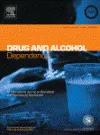| Titre : | Efficacy of brief motivational intervention in reducing binge drinking in young men: A randomized controlled trial (2011) |
| Auteurs : | J. B. DAEPPEN ; N. BERTHOLET ; J. GAUME ; C. FORTINI ; M. FAOUZI ; G. GMEL |
| Type de document : | Article : Périodique |
| Dans : | Drug and Alcohol Dependence (Vol.113, n°1, January 2011) |
| Article en page(s) : | 69-75 |
| Langues: | Anglais |
| Discipline : | TRA (Traitement et prise en charge / Treatment and care) |
| Mots-clés : |
Thésaurus mots-clés ALCOOL ; INTERVENTION BREVE ; JEUNE ; SEXE MASCULIN ; ARMEE ; ETUDE RANDOMISEE ; ABUS ; REDUCTION DE CONSOMMATION ; MOTIVATION ; EFFICACITEThésaurus géographique SUISSE |
| Résumé : |
Background: Brief motivational intervention (BMI) is one of the few effective strategies targeting alcohol consumption, but has not been tested in young men in the community. We evaluated the efficacy of BMI in reducing alcohol use and related problems among binge drinkers and in maintaining low-risk drinking among non-bingers.
Methods: A random sample of a census of men included during army conscription (which is mandatory for 20-year-old males in Switzerland) was randomized to receive a single face-to-face BMI session (N = 199) or no intervention (N = 219). A six-month follow-up rate was obtained for 88.7% of the subjects. Results: Among binge drinkers, there was 20% less drinking in the BMI group versus the control group (incidence rate ratio = 0.80, confidence interval 0.66-0.98, p = 0.03); the BMI group showed a weekly reduction of 1.5 drinks compared to an increase of 0.8 drinks weekly in the control group. Among subjects who experienced one or more alcohol-related consequences over the last 12 months, there was 19% less drinking in the BMI group compared to the control group (incidence rate ratio = 0.81, confidence interval 0.67-0.97, p = 0.04). Among non-bingers, BMI did not contribute to the maintenance of low-risk drinking. Conclusion: BMI reduced the alcohol use of binge drinkers, particularly among those who experienced certain alcohol-related adverse consequences. No preventive effect of BMI was observed among non-bingers. BMI is a plausible secondary preventive option for young binge drinkers. [Author's abstract] |
| Domaine : | Alcool / Alcohol |
| Affiliation : | Alcohol Treatment Centre, Lausanne University Hospital, Mont-Paisible 16, 1011 Lausanne, Switzerland / Suisse |
 Accueil
Accueil



